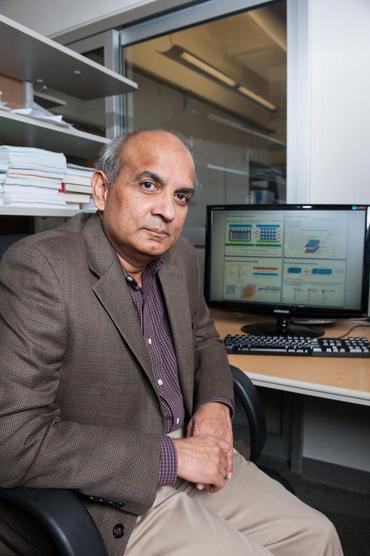


Sudhakar Yalamanchili, the program co-chair of MICRO 2018, passed away on March 23, 2019 after a long battle of cancer.
Yalamanchili was born on the 19th of March, 1956 in Madras, India and he was educated both in India and the United States. He received his Ph.D in Electrical and Computer Engineering from the University of Texas, Austin in 1984. He was a faculty member of ECE at Georgia Institute of Technology for 30 years. Prior to joining Georgia Tech in 1989, he was a Senior and then a Principal Research Scientist at the Honeywell Systems and Research Center in Minneapolis. He was the first hired member for the computer engineering degree program in Georgia Tech and was brought in to establish the Computer Engineering program. Throughout his career, Yalamanchili believed in building bridges rather than fences and viewed the computer engineering/computer science interface as a complementary one.
Yalamanchili made foundational research contributions in high-performance computation and communication. His first two decades of research focused on high-performance multiprocessor communications, paving the way for today’s multicore processors and supercomputers. His group produced the first fully self-timed adaptive router and the first papers on power-efficient multiprocessor networks. Yalamanchili then shifted his attention to multicore and heterogeneous computing. His group produced the open source Ocelot dynamic compilation infrastructure for heterogeneous processors that was widely used in both industry and academia for computer architecture research. Yalamanchili's group also produced the Lynx and Manifold infrastructures, and most recently, they released the KitFox multi-physics modeling package for multicore architectures. He co-authored over 200 publications.
Finally and perhaps the main reason why he is so beloved, Yalamanchili excelled in mentoring junior faculty colleagues. He received the D. Scott Wills ECE Distinguished Mentor Award twice during his career, in 2007 and 2014. Junior faculty members in both ECE and CoC say that Yalamanchili’s friendly support and mentorship has been crucial to their careers, helping transform them from newly minted Ph.D. graduates to faculty members at an elite institution. Yalamanchili was a great role model not only because of his accomplishments, but because of how he conducted himself and treated others. Though Yalamanchili was highly successful, he always understood and appreciated all the challenges, no matter how inconsequential they may seem, that junior faculty face. He was also a great mentor for students including his PhD students and students in the class be graduate or undergraduates.
He was a great colleague, a friend, and a fatherly figure to many of us. We will miss you Sudha.